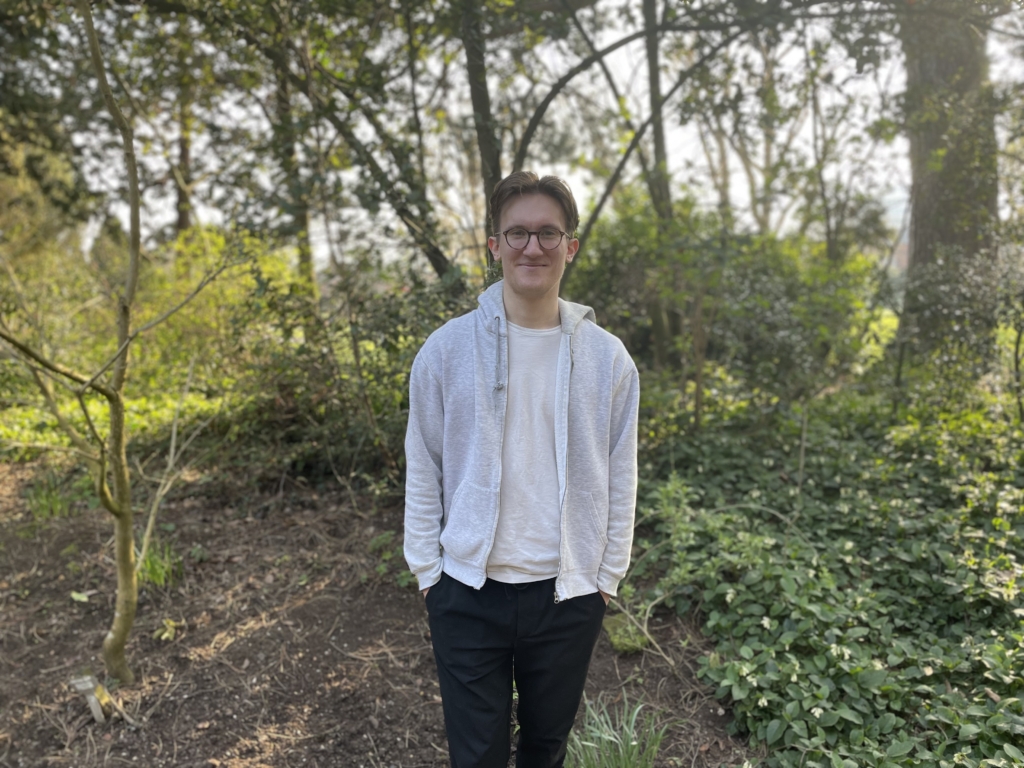Alexander Dürr was chosen as the Youth Delegate of Sweden at the United Nations (UN). Lundagård discussed with the 22 year old the importance of young people’s involvement in politics, his tasks at the UN and challenges ahead.
The person Alexander is difficult to grasp, not only because the conversation with Lundagård takes place via Zoom. Despite his young age, he has apparently acquired the neutral charisma of an experienced professional politician. Nevertheless, his youthful mindset has not completely receded into the background. Alexander exudes a sense of responsibility and shows a great awareness of current issues concerning his generation.
In 2015, Alexander turned his passion for politics into practice for the first time when he took part in events, which were hosted by the European Youth Parliament in Sweden. “It’s one of Europe’s biggest platforms for intercultural dialogue, networking and personal development”, he explains.
“This normally goes through different conferences, where you have different themes and discuss different topics. So, I guess, through that platform, I was really able to find my voice and my areas of interest.”
You have to consider long term effects, which, at the end of the day, will be handled by the youth.
Alexander is also pursuing he latter ones at Lund University, where he is enrolled in the Bachelor programme of Development Studies. He explains that he is mainly interested in sustainability and the complexity of the term.
He also comes across these aspects during his work as Swedish Youth Delegate at the UN. This position is embedded at the National Council for Sweden’s Youth Organizations (LSU). Alexander describes it as the connection between the country’s youth organisations and relevant government institutions.
It takes a lot of energy to be politically involved at many organizations for such a long time. When asked about his overall motivation, Alexander highlights the importance of inclusion and participation: “Both is essential for a democracy and a civil society to work.”
“You have to consider long term effects, which, at the end of the day, will be handled by the youth”, he points out firmly. “So, I think it’s so important that grownups don’t throw responsibilities at the youth like ‘Now it’s your term’. I think inclusion is crucial and fundamental for a civil society to function for democracy to be as legitimate as possible.”
As Swedish Youth Delegate, Alexander assures that the youth does not get overlooked. However, as a non-elected official, his political ‘powers’ are limited. He explains that it is much more about the influence instead, be it through holding speeches or exchanging views with other youth delegates.
“I think most of it comes through our constant communication with different nations or the Swedish representation”, Alexander points out. He uses the exchange with other important political actors to bring up and advocate for topics, which concern the youth. Therefore, his tasks are mainly centred around agenda setting.
During work, Alexander admits that he must often limit his own interests, which he finds quite difficult. Right now, the agenda is focused on an evaluation of the current implementation and functioning of the sustainable development goals. In addition, Alexander engages with different questions regarding gender equality, quality education and biodiversity under water.
I think it is really important to remember that politicians and decision makers are not superhuman beings in the roles they have right now.
In terms of a politically engaged youth, Alexander says that Sweden can be seen as role model. “There are a lot of different things that enable us to be included in politics. And I think one thing is the kind of empowerment that we see: just look at our possibilities for free education, where there are numerous funds, which student organisations can apply for, and in order to mobilise and lobby for questions that are important.”
He adds: “There are various other organisations, government institutions and departments that work to support the youth and making sure that they’re included.” Based on this, Alexander believes that there is a lot that other countries can look at in Sweden to learn from.
All of this makes Alexander proud to represent the country at the UN. He admits that it is a tough balance: “I think it is really important to remember that politicians and decision makers are not superhuman beings in the roles they have right now.”
He points out that they are humans with feelings, who make mistakes. “So, this task is definitely challenging, very challenging so far. And I can imagine it’s going to get even more difficult. But it’s also an educational possibility offered by the Swedish government and LSU. So, I’m just trying to do my best and to challenge myself and learn from that.”
Alexander himself is not the only one who faces challenges in his political engagement. The Covid-restriction have put a temporary halt to the mobilisation of youth groups. As their representative at the UN, he wants to address these issues. In addition, Alexander has some advice for young people who question their political engagement:
“It is important to understand that democracy isn’t just about holding an election every four years. Democracy represents so much more. It represents the possibility to mobilise and engage yourself in political questions, giving you liberties and freedom of speech to be able to grow up and communicate these things.”
“So, I think it becomes more about responsibility, making sure that you’re building the future that you want to see”, Alexander adds. “The future belongs to all of us, for all of us. Democracy is about voicing and influencing decisions every day.”








